
Creatinine Test
About Creatinine test
Creatinine test measures the creatinine levels in your blood. Creatinine is a waste product produced by your muscles as a result of routine metabolic activity. Higher levels of creatinine may be an indication of kidney disease. A creatinine test helps to determine if you have abnormal kidney function, and with early detection, you can receive early treatment. Thus, getting your creatinine checked is recommended to prevent various kidney-related complications.
Creatinine test is also known as
Serum creatinine test, blood creatinine test
What is a creatinine test used for?
Creatinine test is used in the diagnosis of
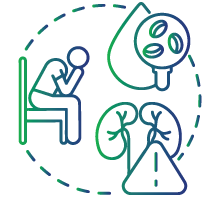
Kidney diseases
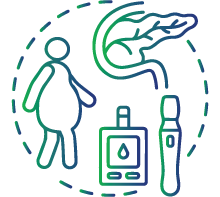
Diabetes
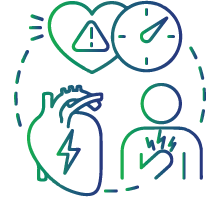
High blood pressure

Heart disease

Liver damage

Malnutrition

Urinary tract obstruction
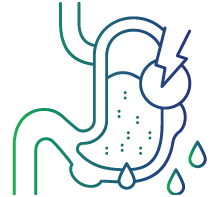
Gastrointestinal bleeding

Family history of kidney disease
Who should get tested?
A creatinine test is recommended to be performed frequently for individuals with the following symptoms and risk factors
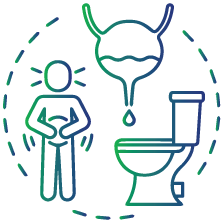
Having increased or decreased urinary frequency (pee)
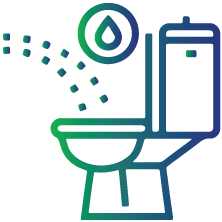
Blood in urine
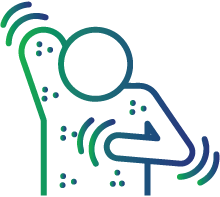
Itching

Fatigue

Swelling in your legs

Muscle cramps

Difficulty in sleeping

Loss of appetite
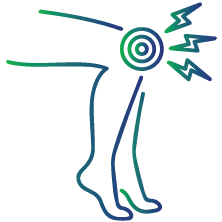
Joint or bone pain

Puffiness around eyes

Smoking
Test Preparation
A creatinine test often requires no extra preparation. However, if your doctor has requested further testing on your blood, you might need to fast (not eat or drink) for a few hours prior to the test. Make sure to follow the specific instructions given by your healthcare provider.
Interpretation of the results
The normal range of creatinine levels may vary depending on your gender.
Creatinine levels (normal ranges)
|
Creatinine levels |
Men |
Women |
Unit |
|
Blood |
0.7-1.3 |
0.6-1.1 |
mg/dL |
|
|
61.9-114.9 |
53- 97.2 |
µmol/L |
Deviation from normal levels indicates the following:
· Creatinine test is used by healthcare providers to help diagnose and monitor various causes of kidney diseases and the risk of various metabolic diseases like diabetes, liver damage, and high blood pressure.
· Higher-than-normal levels of creatinine may be due to underlying disease conditions like:
o Hypovolemia (dehydration)
o Breakdown of muscle fibres (rhabdomyolysis)
o Preeclampsia (high blood pressure during pregnancy)
o Kidney diseases, such as glomerulonephritis, and acute tubular necrosis
o Urinary tract obstruction
· Lower-than-normal levels of creatinine may be due to the following conditions :
o Decrease in muscle mass
o Low protein diet
o Malnutrition
o Over-hydration
FAQs
What is the significance of the creatinine test?
The creatinine test determines the blood creatinine level produced in your body. The screening, monitoring, diagnosis, and follow-up of kidney diseases as well as other medical conditions can all be done with a creatinine blood test.
What are the risks associated with the creatinine test?
There are no known risks. During a blood test, one may experience minor pain or bruising where the needle was inserted, but most symptoms will subside quickly.
What happens during the creatinine test?
During this blood test, a healthcare professional will take a small amount of blood from a vein in your arm using a small needle, which is then collected in a test tube or vial. This usually takes less than a few minutes.
What factors might affect my creatinine test results?
Factors like a diet rich in protein, extreme workouts, using steroids, dehydration, burn wounds, and ageing may affect your creatinine levels. Even if your kidneys are functioning normally, your creatinine levels may increase for several reasons. So, it is recommended that you consult your healthcare provider before getting a creatinine test.
What further tests might I require if I have an abnormal creatinine test result?
If your creatinine levels are high or low, that will determine what kind of additional tests will be required. Your doctor might identify the cause of elevated creatinine levels or discuss why creatinine levels are low. Further tests could consist of:
o Other blood and urine tests
o Blood urea nitrogen (BUN) test
o Glomerular filtration rate (GFR) test

